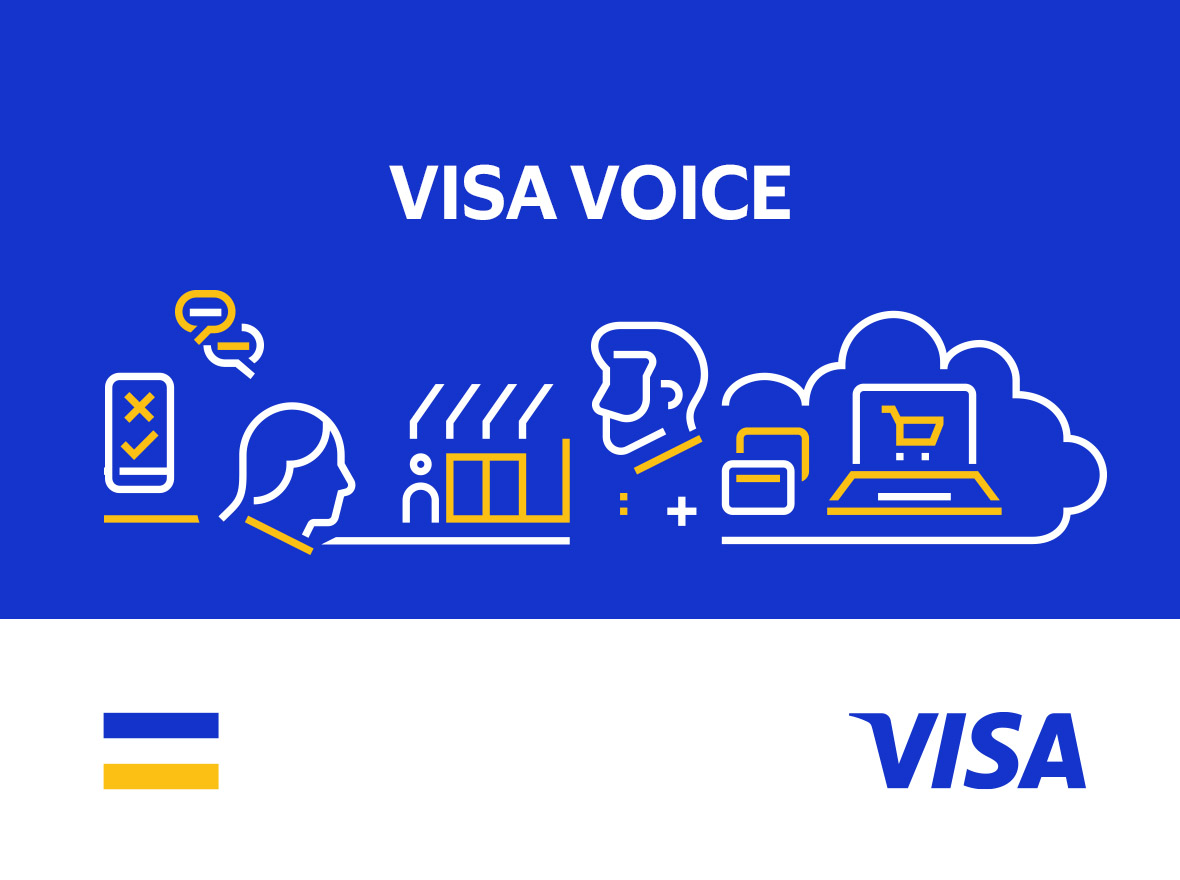Global Payment Trends to Watch Out for in Armenia in 2024
06.09.2024 | 09:42 Home / News / Visa Voice /

The payments industry is nothing, if not constantly changing. And 2024 has brought its fair share of change, yielding better outcomes for consumers, businesses, communities, and economies. 2024 is bringing us a world where small businesses can increasingly serve a global marketplace, where open infrastructure and managed services mean banks, FIs, businesses, and consumers get the solutions they need, and where moving value across networks is as easy, seamless, and secure as moving it across a single network — and we are here for it. The Armenian market is not an exception here, as we observe various trends in the payment ecosystem impact the digital transformation of the country.
“Recent payment advancements present unique opportunities for the Armenian market, offering fertile ground for growth and development,” explains Diana Kiguradze, Visa Regional Manager for the Caucasus. “The dynamic payment ecosystem in the country is adept at quickly absorbing and integrating global trends, ensuring that the hottest innovations are readily available. With Armenian businesses and consumers alike eager to master new technologies, Visa expects continuous growth of the country’s payment market.”
Here are the top payment trends resulted from globalization, business needs, technological advancement, consumer demands, speed, and innovations:
Creators and SMBs go global
Digital payments are transforming opportunities for SMBs to pay and be paid, making it possible to reach new audiences. From the creator and sharing economies to ecommerce and traditional brick-and-mortar businesses, 2024 is the year SMBs go global. For businesses of all sizes, the mindset has largely shifted beyond the local neighborhood to the global digital economy.
Nearly 4 in 5 SMBs (79%) cited selling across borders as a focus for their growth, and consumers are ready for it. Some 72% of consumers said they are comfortable buying from businesses in other countries.
In 2024, small and micro businesses benefit from increased digitization that both speeds and protects payments, making expansion beyond geographical borders easier than ever before. Armenia is no exception: over a quarter of Armenian SMEs engage in foreign trade, and this number is growing.
Companies join forces to meet consumer expectations
Consumer expectations are shaping more than just payment infrastructure; they demand tailored experiences. Meeting these expectations can strain tech and engineering resources or introduce excessive complexity.
Consequently, more businesses are turning to partner-based solutions or managed services. Value-added services from partnerships allow companies to meet consumer demands without disrupting their operations, unlocking efficiency and building customer trust in a rapidly changing environment.
In the Armenian payment market, players can leverage Visa’s value-added services to support payments, minimize risks, and optimize efficiency.
Global travel returns
With the worst of the pandemic in the rearview, travel is back, and momentum is expected to continue. According to the Tourism Committee of Armenia, the total number of tourist visits to the country in 2023 has registered an exceptional rise, making over 2,300,000 — a 40% increase compared to 2022 and about a 22% increase compared to pre-pandemic 2019.
A preference for flexibility in travel arrangements remains, and Visa stands as one of the biggest supporters of travel by providing various services and solutions. Visa offers a range of travel benefits for its premium cardholders in Armenia. These benefits include comfortable travel with Fast Track service available at Zvartnots International Airport, discounts on hotel bookings through online platforms, 3 GB of free roaming in partnership with AirAlo, special rates for trips from Zvartnots airport in collaboration with GG, access to 1,300 lounges worldwide with Lounge Key, travel insurance, and more.
AI brings new opportunities and challenges to payments
Generative AI is taking the stage worldwide, stirring both concerns and excitement. One of its most promising applications is in fighting fraud, as it can analyze and learn from unprecedented amounts of data compared to traditional models. At the same time, generative AI is transforming work processes, with Visa reporting a 30% increase in coding productivity by automating repetitive tasks and allowing engineers to focus on high-value code. However, AI also presents new challenges; for instance, it enables fraudsters to create more realistic phishing scams, making it harder for consumers to detect errors. This evolving threat landscape requires businesses and consumers to adapt continuously.
Views 20370
“Recent payment advancements present unique opportunities for the Armenian market, offering fertile ground for growth and development,” explains Diana Kiguradze, Visa Regional Manager for the Caucasus. “The dynamic payment ecosystem in the country is adept at quickly absorbing and integrating global trends, ensuring that the hottest innovations are readily available. With Armenian businesses and consumers alike eager to master new technologies, Visa expects continuous growth of the country’s payment market.”
Here are the top payment trends resulted from globalization, business needs, technological advancement, consumer demands, speed, and innovations:
Creators and SMBs go global
Digital payments are transforming opportunities for SMBs to pay and be paid, making it possible to reach new audiences. From the creator and sharing economies to ecommerce and traditional brick-and-mortar businesses, 2024 is the year SMBs go global. For businesses of all sizes, the mindset has largely shifted beyond the local neighborhood to the global digital economy.
Nearly 4 in 5 SMBs (79%) cited selling across borders as a focus for their growth, and consumers are ready for it. Some 72% of consumers said they are comfortable buying from businesses in other countries.
In 2024, small and micro businesses benefit from increased digitization that both speeds and protects payments, making expansion beyond geographical borders easier than ever before. Armenia is no exception: over a quarter of Armenian SMEs engage in foreign trade, and this number is growing.
Companies join forces to meet consumer expectations
Consumer expectations are shaping more than just payment infrastructure; they demand tailored experiences. Meeting these expectations can strain tech and engineering resources or introduce excessive complexity.
Consequently, more businesses are turning to partner-based solutions or managed services. Value-added services from partnerships allow companies to meet consumer demands without disrupting their operations, unlocking efficiency and building customer trust in a rapidly changing environment.
In the Armenian payment market, players can leverage Visa’s value-added services to support payments, minimize risks, and optimize efficiency.
Global travel returns
With the worst of the pandemic in the rearview, travel is back, and momentum is expected to continue. According to the Tourism Committee of Armenia, the total number of tourist visits to the country in 2023 has registered an exceptional rise, making over 2,300,000 — a 40% increase compared to 2022 and about a 22% increase compared to pre-pandemic 2019.
A preference for flexibility in travel arrangements remains, and Visa stands as one of the biggest supporters of travel by providing various services and solutions. Visa offers a range of travel benefits for its premium cardholders in Armenia. These benefits include comfortable travel with Fast Track service available at Zvartnots International Airport, discounts on hotel bookings through online platforms, 3 GB of free roaming in partnership with AirAlo, special rates for trips from Zvartnots airport in collaboration with GG, access to 1,300 lounges worldwide with Lounge Key, travel insurance, and more.
AI brings new opportunities and challenges to payments
Generative AI is taking the stage worldwide, stirring both concerns and excitement. One of its most promising applications is in fighting fraud, as it can analyze and learn from unprecedented amounts of data compared to traditional models. At the same time, generative AI is transforming work processes, with Visa reporting a 30% increase in coding productivity by automating repetitive tasks and allowing engineers to focus on high-value code. However, AI also presents new challenges; for instance, it enables fraudsters to create more realistic phishing scams, making it harder for consumers to detect errors. This evolving threat landscape requires businesses and consumers to adapt continuously.










